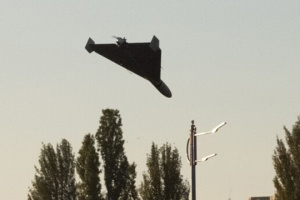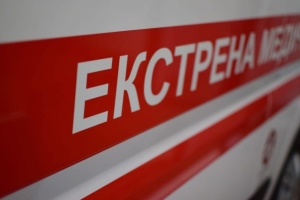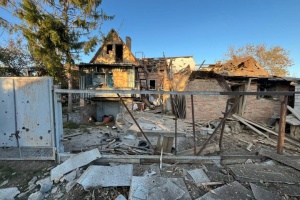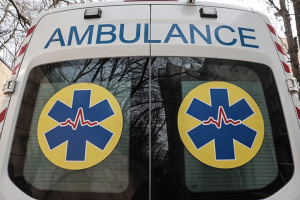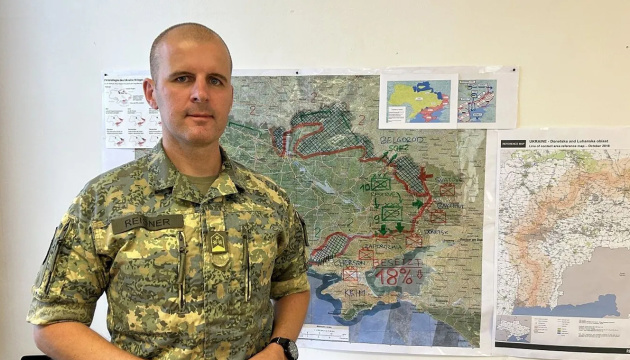
Russia’s operational-level goal to stretch frontline in Ukraine as much as possible - Austrian colonel
This opinion was expressed in an interview with Ukrinform by Markus Reisner, Austrian Army Colonel, superindendent at the Officer Training Institute, Theresian Military Academy.
"On the tactical level, we see that the Russians are trying to tie down the Ukrainians along the entire front, wherever possible. This means keeping deployed forces in direct contact so that they are not mobile and accessible. At the operational level, the goal of the Russians is to stretch the Ukrainians as regards the use of forces," he said.
According to Reisner, this became obvious after the Russian army opened a new section of the front in Kharkiv region. According to the Austrian military expert, the purpose of such actions was "not to advance toward Kharkiv as such but to force Ukraine to deploy valuable reserves and forces to that area."
"And at the strategic level, the goal is to exhaust Ukraine with airstrikes on critical infrastructure sites. That is, in fact, we are dealing with a war of attrition," said the Austrian colonel.
The officer sees seven phases of Russia’s full-scale invasion. The first one is the success of the Ukrainian defense that lasted from February to March 2022. It was in March, Reisner adds, that it also became clear that the Russian blitzkrieg had failed - "when the Russians began to withdraw from Kyiv to Donbas."
"The second phase is the start of the war of attrition, from April to August 2022. The third phase came with Ukrainian offensive operations near Kharkiv and Kherson in September-October 2022. The fourth phase is Russian reinforcement during winter, from November 2022 to April 2023, an attempt to intensify strategic airstrikes. Then the fifth phase was the unsuccessful summer offensive of Ukrainian troops, from May to October 2023. Next was the transition to the sixth phase, when Russia tried to regain momentum, from November 2023 to February 2024, Russia’s second winter offensive," the expert said.
According to him, since March 2024, the seventh phase has been underway, the Russian summer offensive, which is precisely about stretching Ukrainian forces. Its launch was marked with the Russian offensive on the territory north of Kharkiv.
"It is possible to outline Russia’s operational intention to stretch the Ukrainian Armed Forces. In other words, an attempt was made to divert the Armed Forces from Donbas and ensure that reserves are no longer deployed there. And, in my opinion, this also led to the fact that the Russians eventually managed to break into the closest Ukrainian defensive positions, not only in Ocheretyne, but also in a number of other locations," Reisner noted.
He added that this phase also sees an increase in the number of Russian troops involved: "It is believed that about 650,000 Russian soldiers are currently involved. About 520,000 of them are at the front. They are trying to advance, especially in Donbas."
According to the Austrian colonel, the decisive factor for this seventh phase is resources. "That is, there is a war of attrition. And one must understand: even if, at first glance, not much is happening at the front, in fact the war is in progress and its course is determined by how resources are utilized," he said.
As Ukrinform reported earlier, President Volodymyr Zelensky said Russia’s offensive on Kharkiv had been repelled but Putin’s attempt to expand the war on the eastern front proved that the existing international pressure on Russia was insufficient.

